Ultimate Comparison of Tankless vs Tank Water Heaters in West Monroe
If you're looking to replace your water heater in West Monroe, there are a few key factors to consider. One of the first decisions you'll need to make is whether to go with a tank vs tankless model. Our comprehensive guide takes a closer look at both options, taking into account cost-effectiveness, maintenance, installation, and longevity. It's crucial to weigh the pros and cons of tank and tankless models. Consider factors such as your budget, energy efficiency goals, maintenance requirements, and the lifespan of the unit. By carefully evaluating these factors, you'll be able to choose the best water heater solution for your home. If you need further assistance or have any questions, don't hesitate to seek expert advice.

What is a storage tank water heater and how does it work?
A storage tank water heater is a conventional type of water heater that stores and heats a large volume of water in a tank. It typically consists of a cylindrical tank and is widely used in residential and commercial settings. The working principle of a storage tank water heater is relatively simple. The tank is filled with cold water, which is then heated using gas burners or electric heating elements located at the bottom of the tank. As the water gets heated, it rises to the top of the tank, displacing the cold water and creating a continuous flow of hot water. To ensure a constant supply of hot water, storage tank water heaters employ a thermostat that maintains the desired water temperature. When the temperature of the water drops below the set level, the heating elements are activated, and the process of heating the water begins again. Although storage tank water heaters can provide a large volume of hot water, they have a limited capacity. Once the heated water in the tank is fully utilized, it takes time to reheat the cold water, causing a delay in accessing hot water until the tank refills and heats up again. In terms of maintenance, storage tank water heaters require periodic flushing to remove sediment buildup, which can affect efficiency and longevity. Additionally, the tanks may need insulation to minimize heat loss and reduce energy consumption.

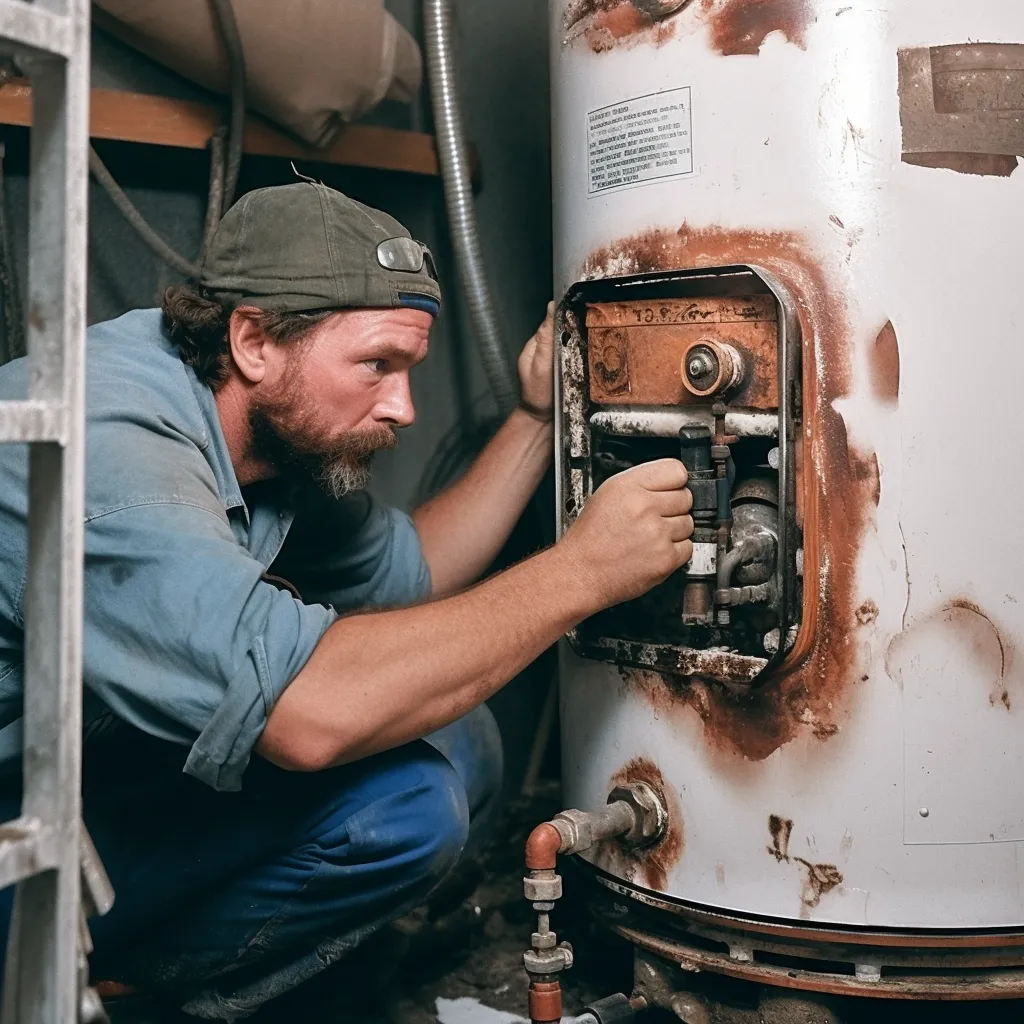
Benefits of a tank water heater
A tank water heater offers numerous benefits that make it a reliable and efficient choice:
Cost-Effective: Tank water heaters are generally more affordable upfront compared to other types of water heaters. This makes them a cost-effective solution for homeowners on a budget. Additionally, their maintenance and repair costs are typically lower compared to alternative options.
Adequate Hot Water Supply: Tank water heaters are designed to store and heat a large amount of water, providing an adequate supply of hot water for your household needs. This makes them suitable for larger families or homes with multiple occupants, ensuring everyone can enjoy a warm shower or bath without running out of hot water.
Ease of Installation: Replacing a water heater can be a time-consuming and complicated process. However, a tank water heater offers a relatively simple installation process. They are designed to easily fit into most existing plumbing systems, reducing the need for major modifications or additional expenses.
Reliable and Trusted Technology: Tank water heaters have been in use for decades and have proven their reliability. Manufacturers continuously improve the technology, making tanks more energy-efficient, durable, and long-lasting. As a result, homeowners can trust that their tank water heater will work consistently and efficiently.
Easy Maintenance: Maintaining a tank water heater is relatively straightforward. Regular maintenance, such as flushing the tank to remove sediment buildup, can help prolong its lifespan. Additionally, most common issues that arise with tank water heaters can be easily repaired by a professional plumber.
Energy Efficiency: While tank water heaters are not as energy-efficient as tankless water heaters, modern models have made significant strides in reducing energy consumption. Look for models with improved insulation and high energy efficiency ratings to help keep your utility bills under control.
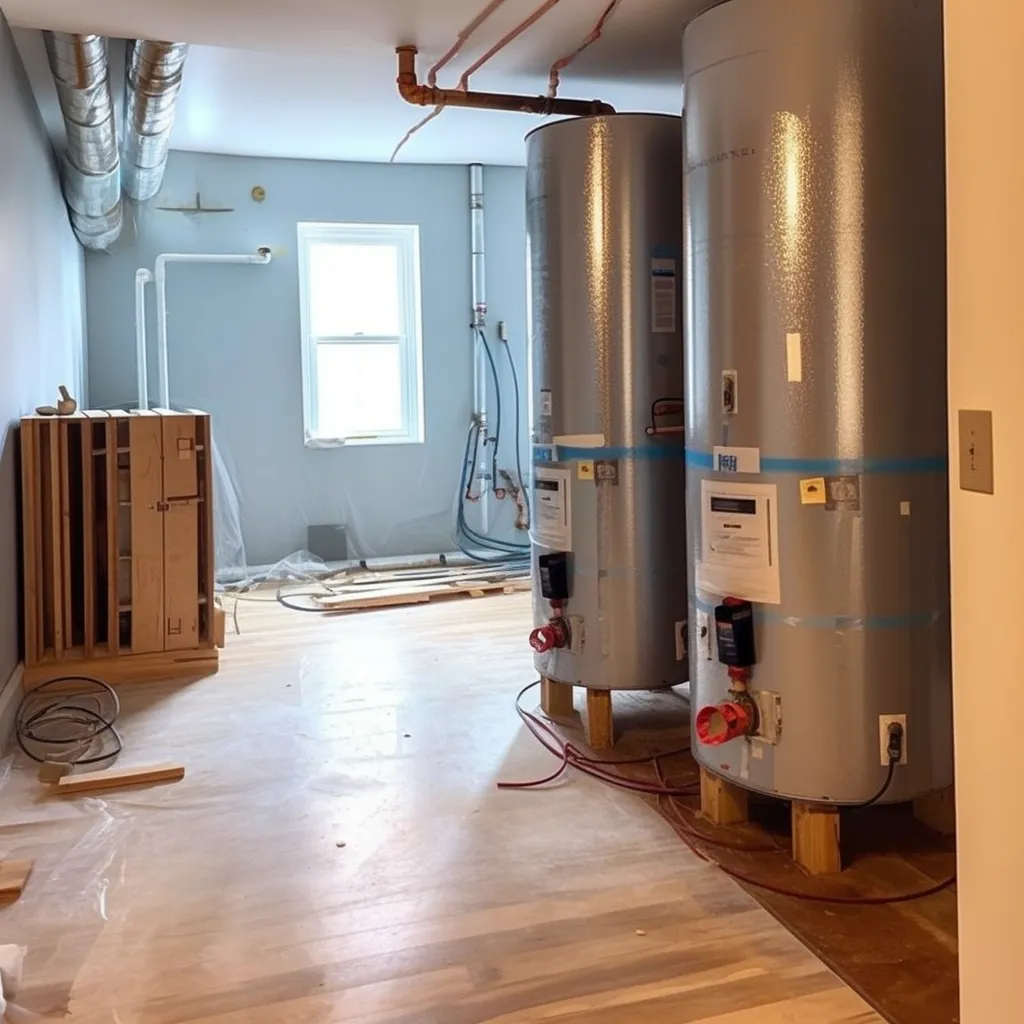
What are the disadvantages of a tank water heater?
Tank water heaters have some notable drawbacks that homeowners should consider:
One drawback is their limited storage capacity. Tank water heaters are designed to store a specific amount of hot water, typically ranging from 40 to 60 gallons. Once this storage capacity is depleted, it takes time for the water to heat up again, leading to a possible inconvenience if multiple household members need hot water simultaneously.
Another drawback of tank water heaters is their energy inefficiency. Since the water stored in the tank needs to be constantly heated to maintain its temperature, energy is required even when hot water is not being used. This constant energy consumption can result in higher utility bills.
Tank water heaters have a limited lifespan. With the constant exposure to water and heat, they are prone to corrosion and rust over time. This can lead to leaks and potential damage to surrounding areas. Regular maintenance and occasional replacements become necessary as tank water heaters age.
In terms of safety, tank water heaters also pose certain risks. The pressure inside the tank can build up, increasing the chances of explosions or leaks if the pressure relief valve malfunctions.
The stored water can become a breeding ground for bacteria, such as Legionella, if not properly maintained.
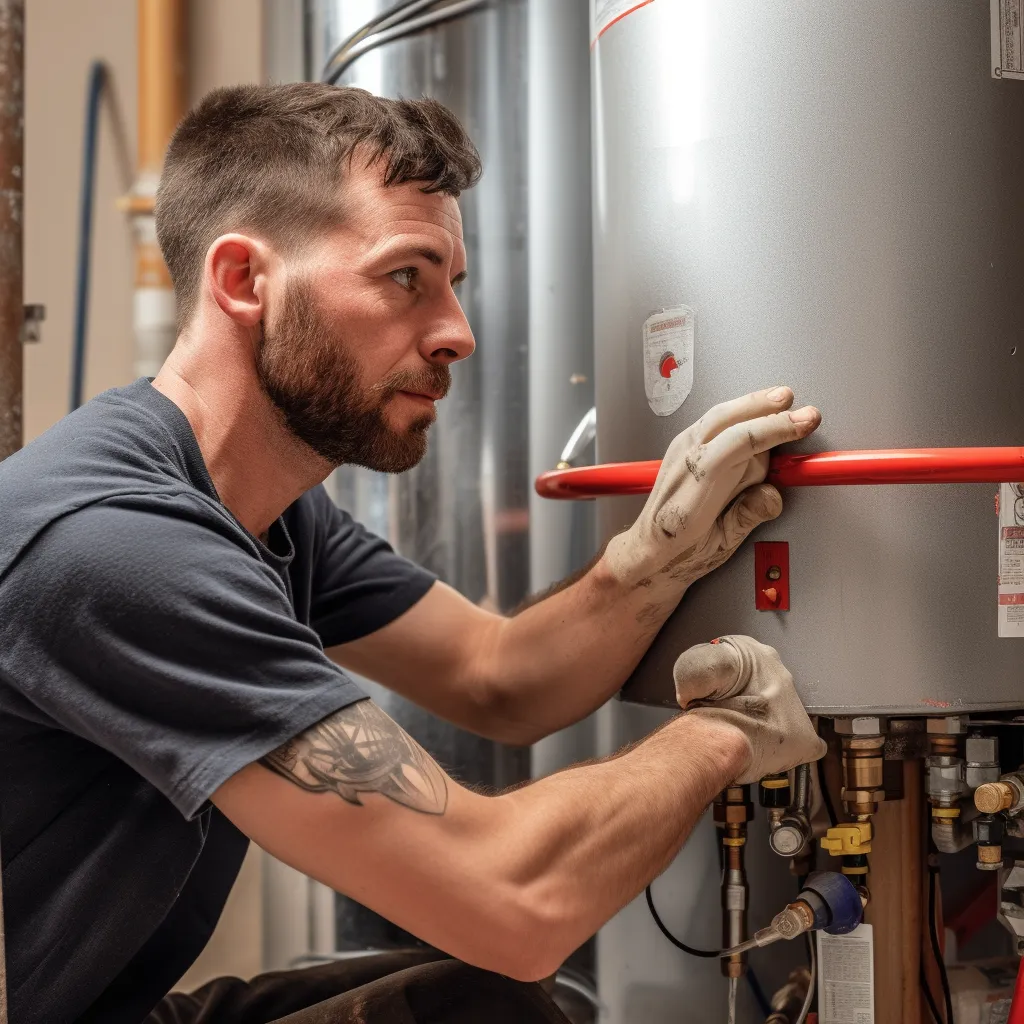
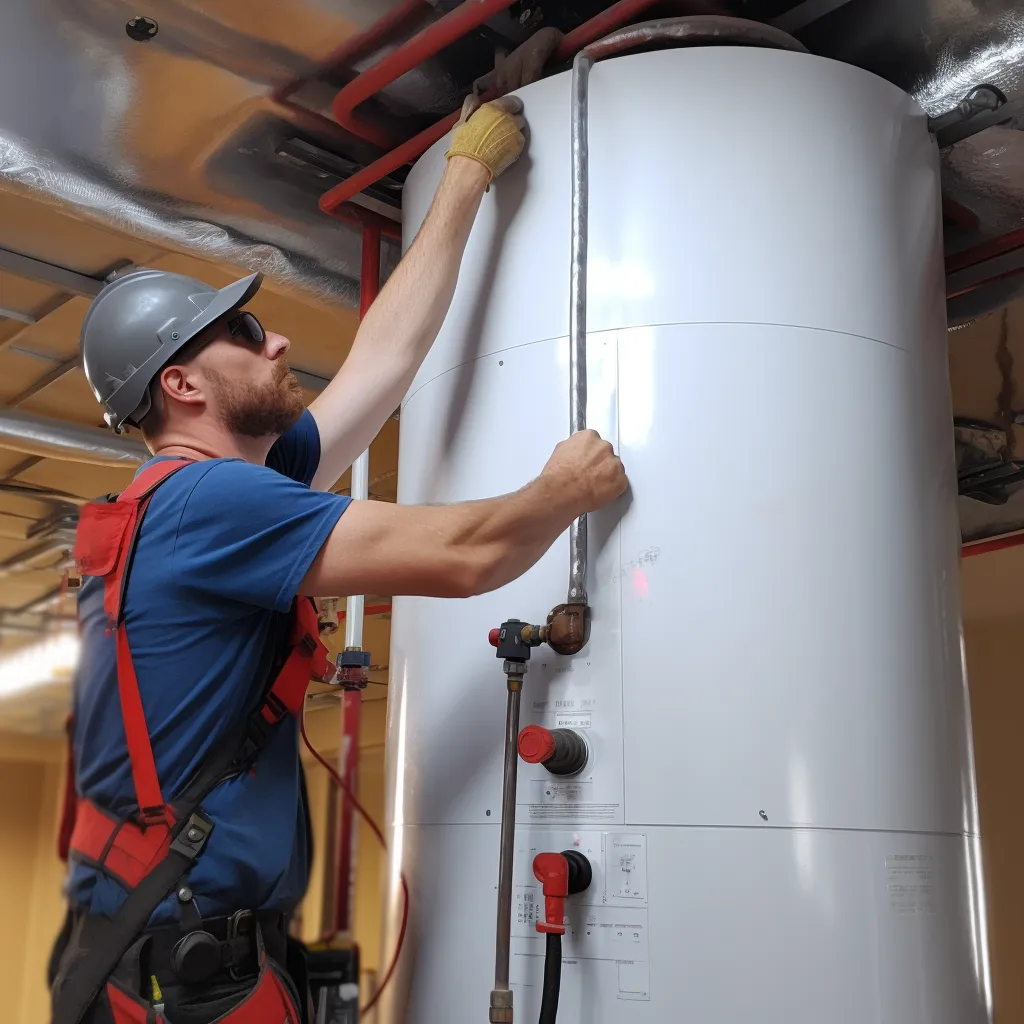
What is a tankless water heater and how does it work?
A tankless water heater, also known as an on-demand water heater, is a modern and energy-efficient alternative to traditional water heaters. Unlike conventional water heaters that store and constantly heat a large amount of water in a tank, a tankless water heater heats water on demand as it passes through the unit. The working principle of a tankless water heater involves the use of high-powered electric elements or gas burners. When hot water is required, the cold water supply enters the unit and flows through a heat exchanger. As the water passes over the heat exchanger, it is rapidly heated to the desired temperature. This process eliminates the need for a storage tank, as hot water is produced instantaneously.
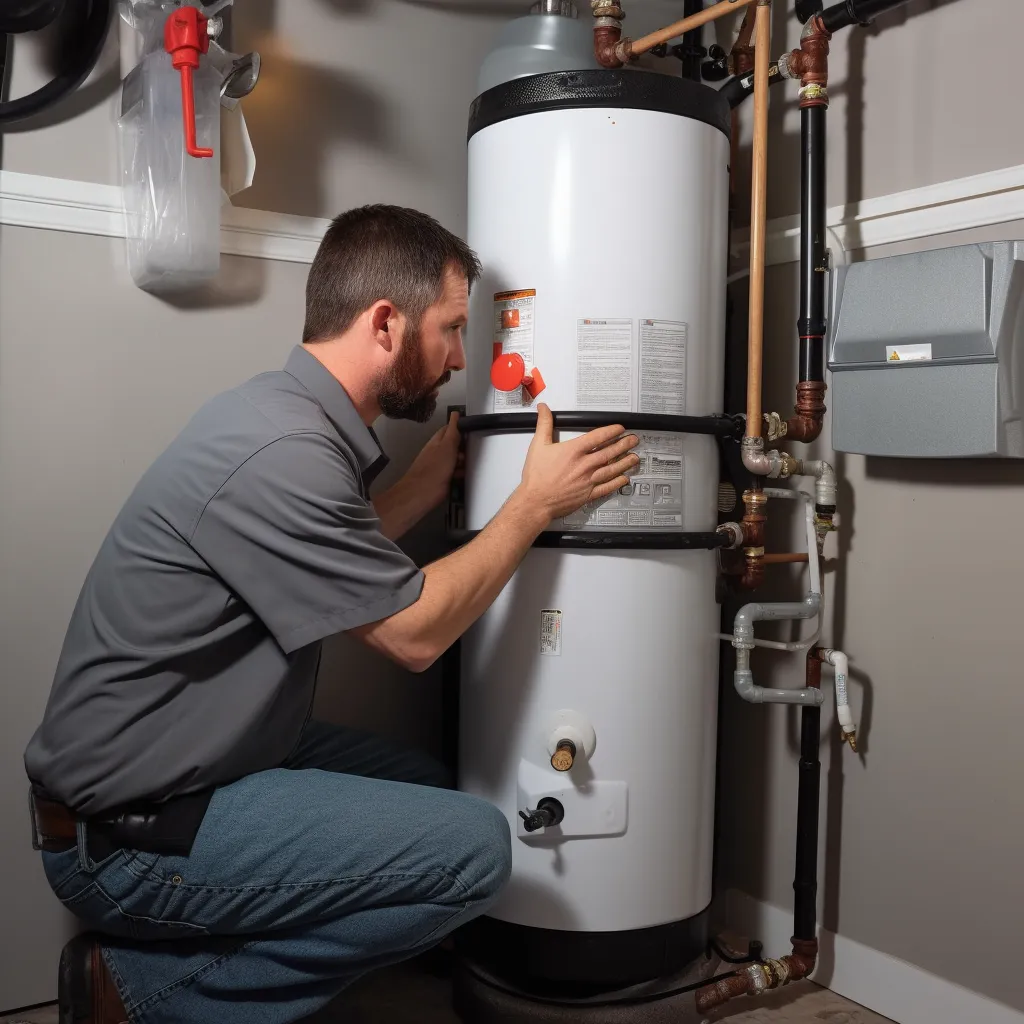
What are the advantages of a tankless water heater?
A tankless water heater offers numerous benefits compared to traditional water heaters:
One of the key advantages is its energy efficiency. Unlike conventional water heaters, tankless units do not continuously heat and store large amounts of water. Instead, they heat water instantly as it passes through the unit, reducing energy consumption and lowering utility bills.
Another benefit of tankless water heaters is their space-saving design. Traditional water heaters have large storage tanks that can take up a significant amount of space in basements or utility rooms. In contrast, tankless models are compact and mounted on walls, freeing up valuable floor space.
Tankless water heaters also provide unlimited hot water supply. With a traditional water heater, there is a limit to the amount of hot water available before it needs time to heat up more water. However, tankless units heat water on demand, ensuring a continuous flow of hot water whenever needed.
Tankless water heaters have a longer lifespan compared to traditional units. While conventional water heaters typically last around 10-15 years, tankless models can last up to 20 years or more with proper maintenance. This longer lifespan not only translates to cost savings over time but also reduces the environmental impact of regularly replacing water heaters.
In terms of maintenance, tankless water heaters are generally easier to maintain. They do not have a storage tank that can develop leaks or accumulate sediment, common issues found in traditional water heaters. This means fewer repairs and less likelihood of water damage in the long run.

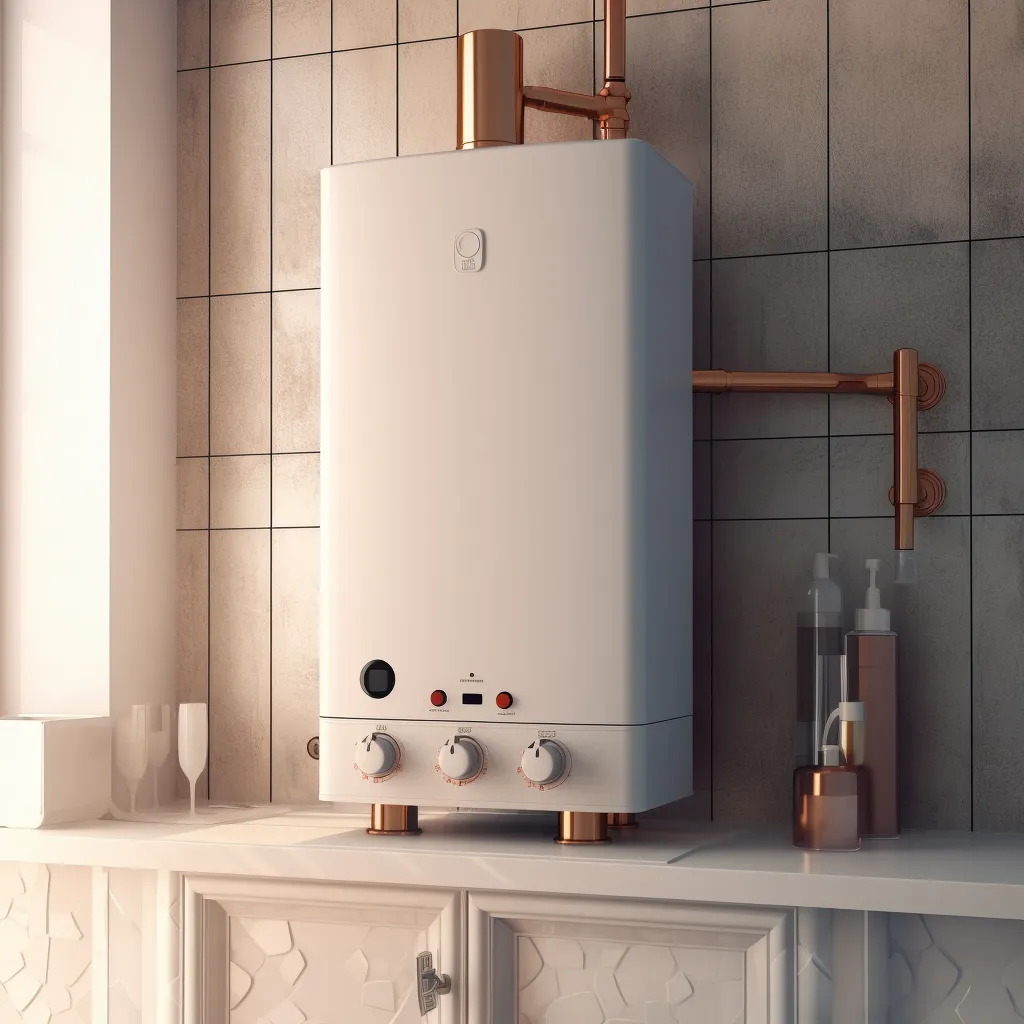
What are the drawbacks of a tankless water heater?
While tankless water heaters have several advantages, it's important to consider the potential disadvantages as well:
One key drawback is the higher initial cost compared to traditional tank water heaters. Tankless units typically require a larger upfront investment due to their advanced technology and installation requirements.
Additionally, the flow rate of a tankless water heater may be limited. This means that if multiple appliances or fixtures require hot water simultaneously, the unit may struggle to meet the demand, resulting in reduced water pressure or temperature fluctuations. It's crucial to select a model with an appropriate flow rate based on your household's needs to mitigate this concern.
Another potential disadvantage is the need for professional installation. Unlike traditional water heaters, which can often be installed by homeowners themselves, tankless systems typically require professional expertise. This can increase both the upfront costs and the inconvenience of replacing or installing a tankless water heater.
Maintenance can be more complex for tankless units. Due to the advanced technology involved, periodic maintenance is crucial to ensure optimal performance. This often involves descaling the heat exchanger, which requires a certain level of technical knowledge. Neglecting maintenance can lead to decreased efficiency and potential damage to the unit.
A power outage can render a tankless water heater useless, unlike traditional units that rely on a storage tank. Without a power source, tankless systems cannot heat water. Therefore, if you experience frequent power outages in your area, it's important to consider this as a potential disadvantage.
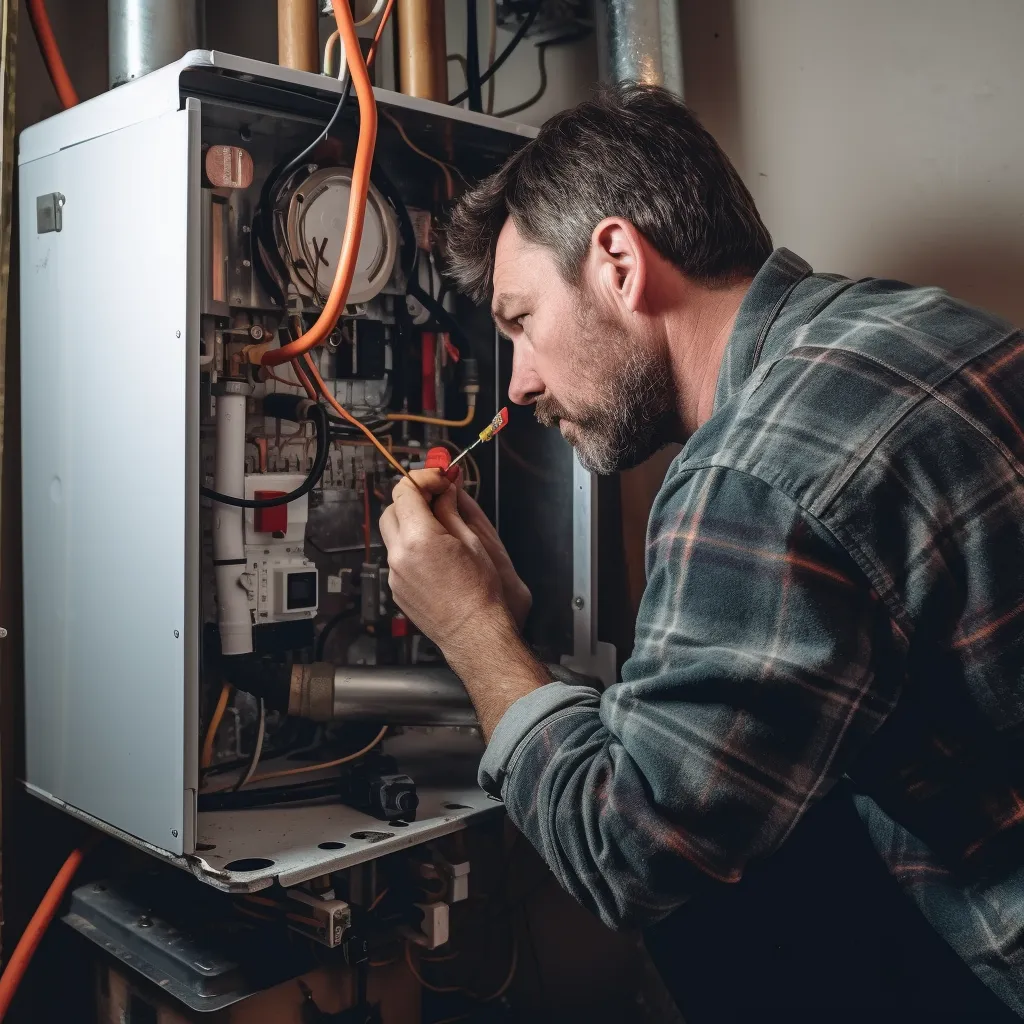
Are storage tank water heaters energy-efficient?
The energy efficiency of storage tank water heaters is not as high as newer, more advanced water heater models. In terms of efficiency, storage tank water heaters are known to have some drawbacks. One major concern is heat loss. Since the hot water is constantly stored in the tank, energy is wasted as the water cools down over time. This is especially true if the water heater is not well-insulated. Furthermore, storage tank water heaters need to continuously maintain the stored water temperature, which requires a constant energy input. This can result in higher energy bills and can be quite wasteful, especially during periods of low or no hot water usage.
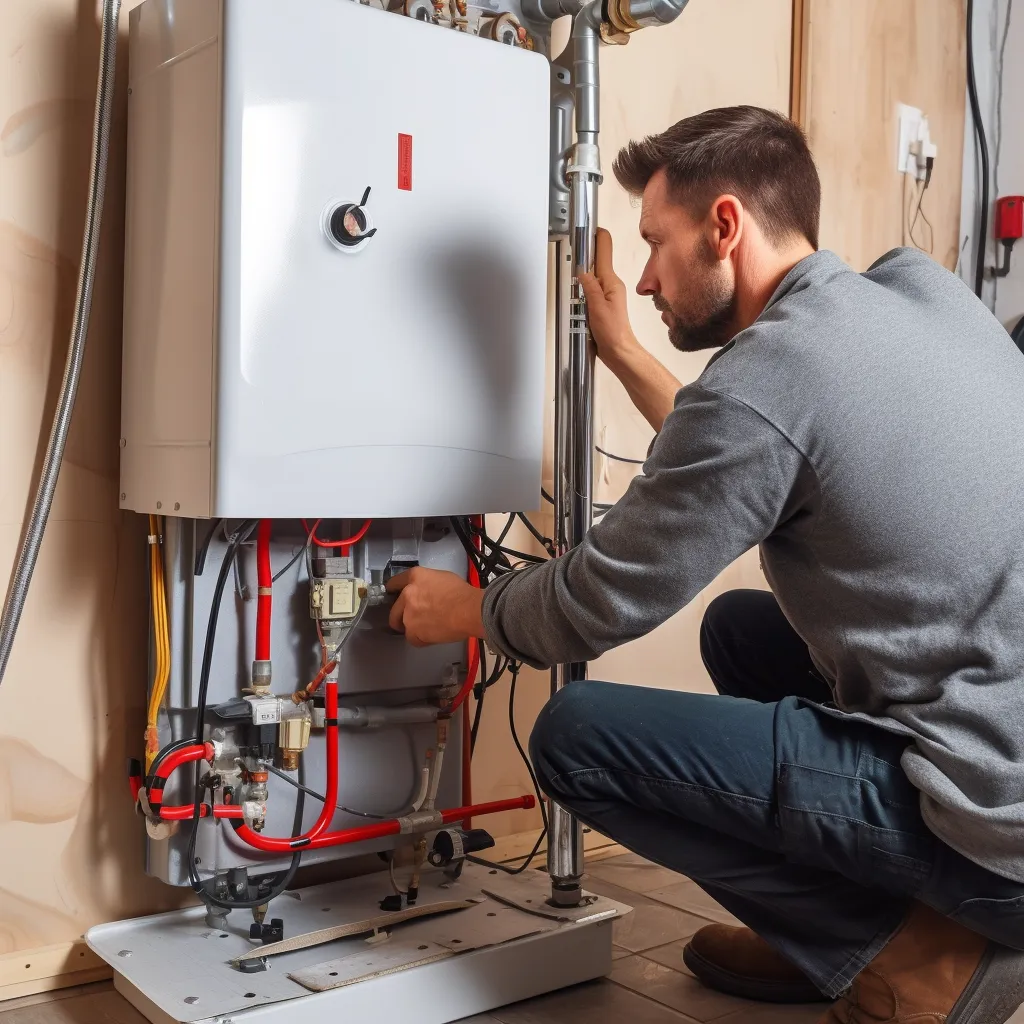
Are tankless water heaters energy-efficient?
Contrary to conventional water heaters, tankless water heaters do not store and continuously heat water in a large tank. Instead, they heat water on-demand, as it is needed. By eliminating the need for storage, tankless water heaters effectively eliminate standby heat loss, which occurs when the stored water in a conventional water heater cools down and needs reheating. Consequently, tankless water heaters are more energy-efficient as they only consume energy when hot water is required. Additionally, tankless water heaters utilize advanced heating technology to heat water rapidly and precisely. They often employ electric heating elements or a gas burner to provide an immediate supply of hot water. This eliminates the need to wait for a large tank to refill and reheat before hot water can be accessed. The rapid heat-up time ensures that energy is used efficiently, reducing wasted energy and increasing overall energy efficiency.
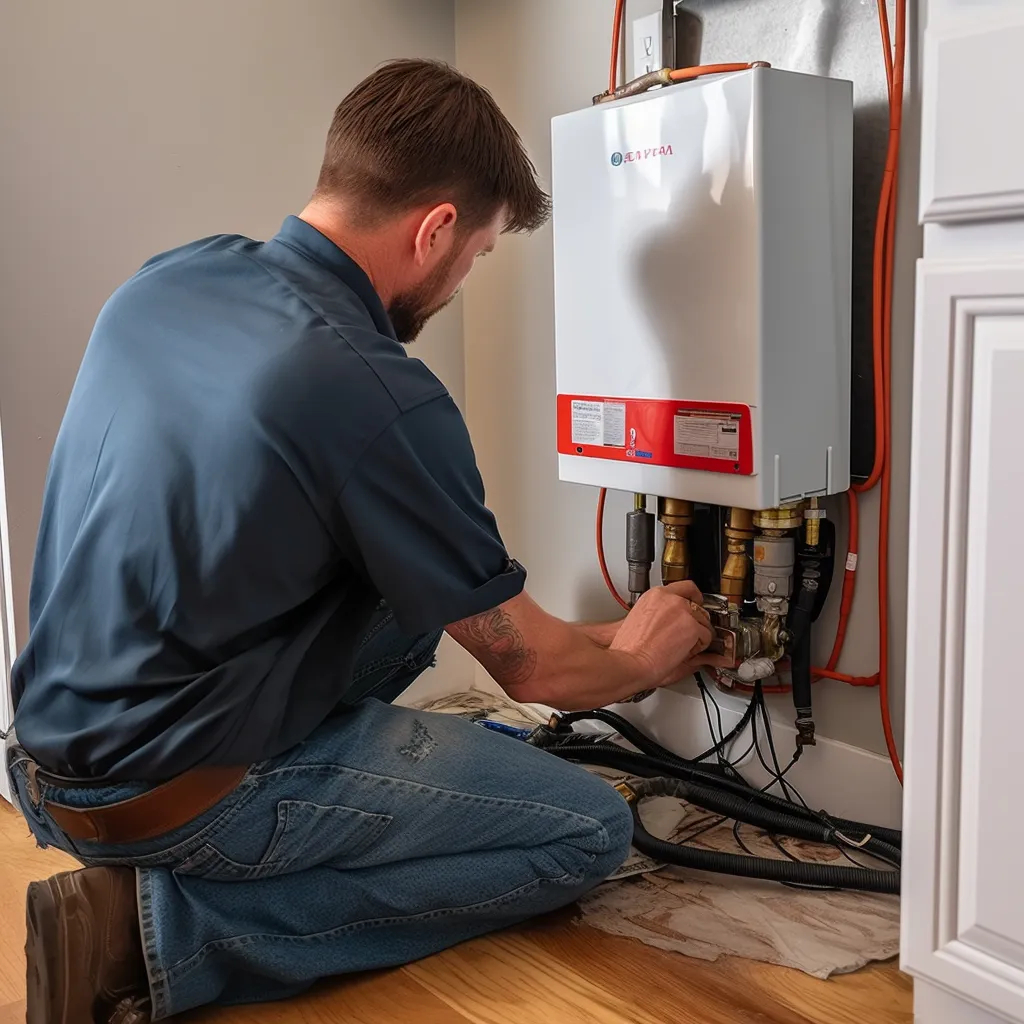
What does it cost to buy and install a tank heater?
The price of tank water heaters can vary depending on their size and type. On average, you can expect to spend between $500 and $2,000. Keep in mind that if you decide to go for a more advanced model with additional features, the overall expense may increase. In addition to the cost of the unit itself, you need to factor in the installation costs. These can go up to $1,500, depending on the prevailing labor rates and the condition of your plumbing. It's important to note that installing a new water heater will require a dedicated electrical circuit and a reliable gas line, depending on the type you choose. When choosing a replacement water heater, you must consider the appropriate tank size. This is crucial in ensuring that you have a sufficient hot water supply for everyone in your household. Taking into account your household's hot water needs is vital for a suitable replacement, ensuring that no one is left without hot water.
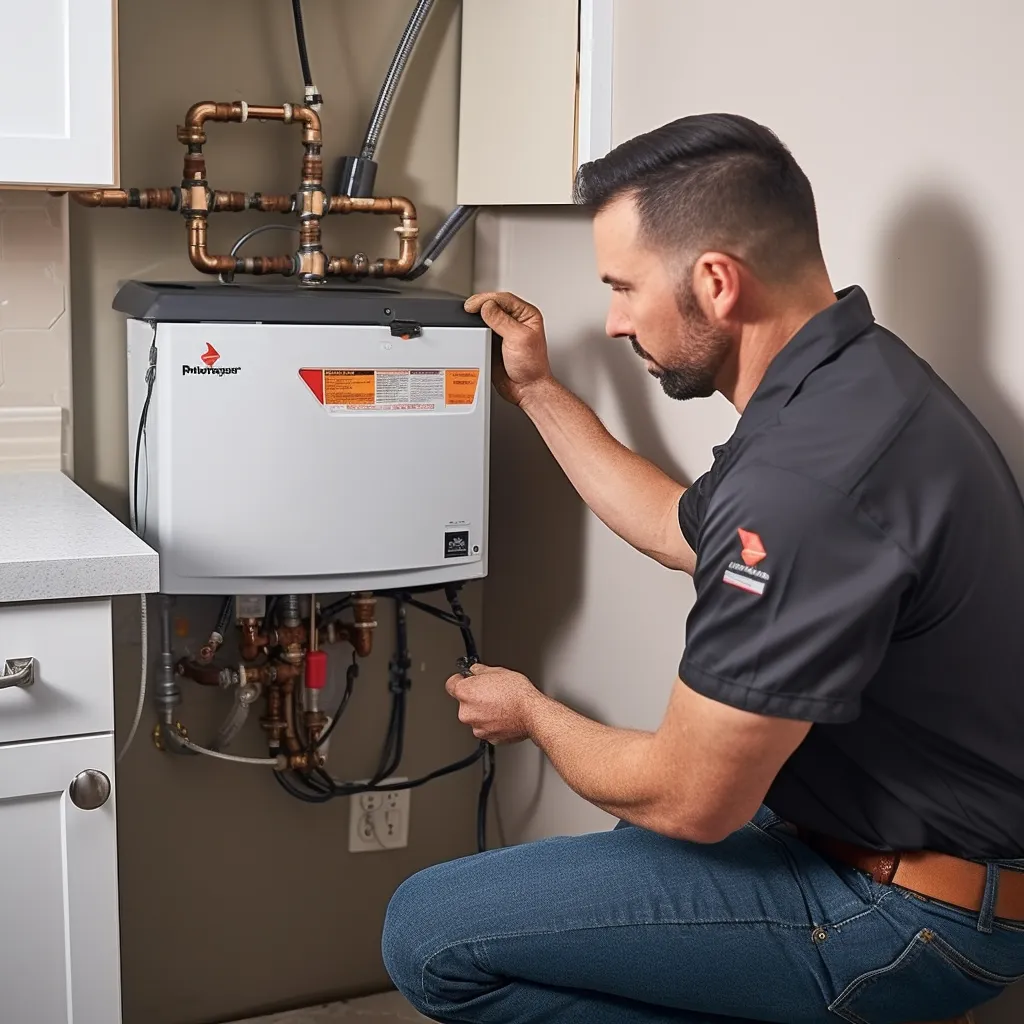
What does it cost to buy and install a tankless water heater?
The cost of a tankless water heater can vary depending on the brand, size, and features you choose. On average, you can expect to spend anywhere from $500 to $2,500 for a high-quality tankless water heater. In addition to the purchase cost, you'll need to factor in the installation expenses. The installation of a tankless water heater typically requires the expertise of a professional plumber or HVAC technician. The installation costs can vary depending on the complexity of the job and any additional modifications needed. On average, the installation cost for a tankless water heater can range from $1,000 to $3,000. This includes the labor, materials, and any necessary permits. Keep in mind that this is just an estimate, and the actual cost may vary based on your specific circumstances. While the initial investment in a tankless water heater may be higher compared to a traditional water heater, the long-term savings can make it a worthwhile choice. Tankless water heaters are known for their energy efficiency, as they only heat water on-demand, eliminating the standby heat loss associated with traditional tank-style heaters.
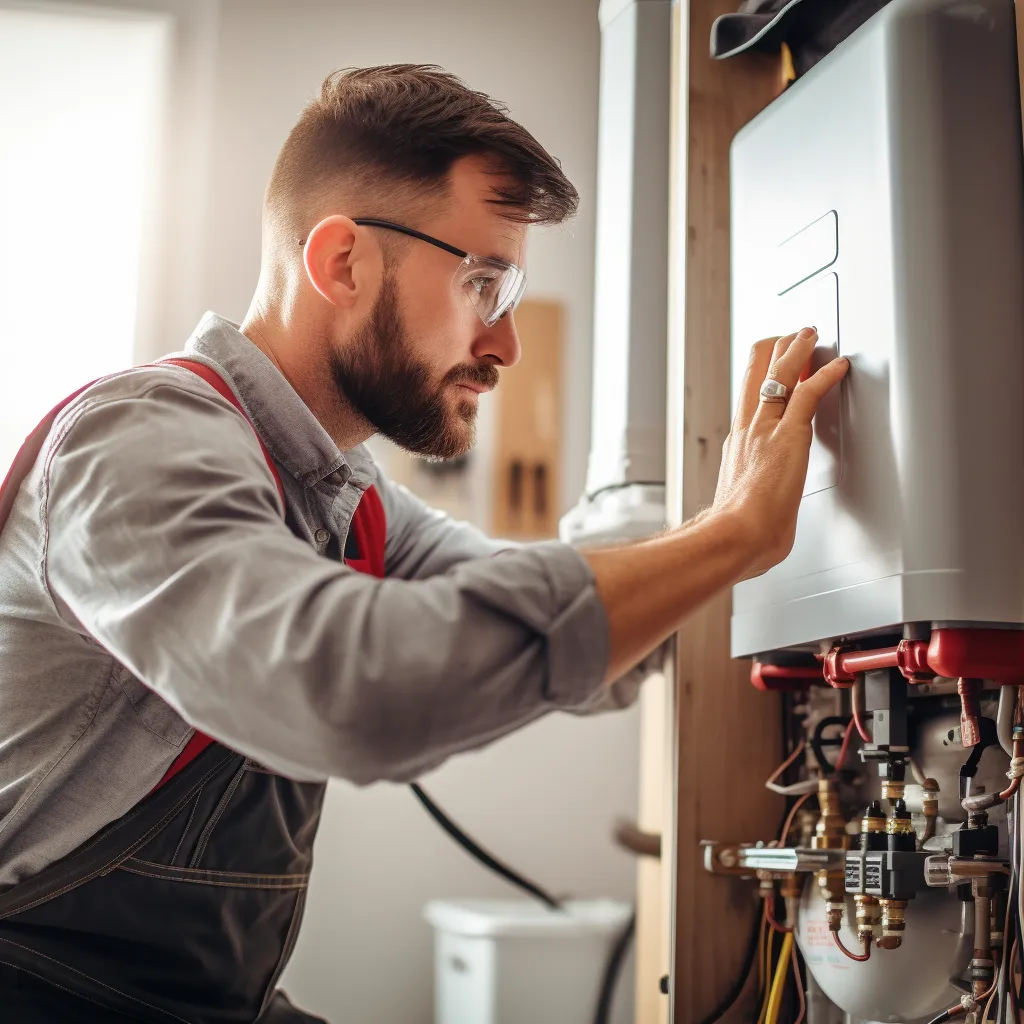
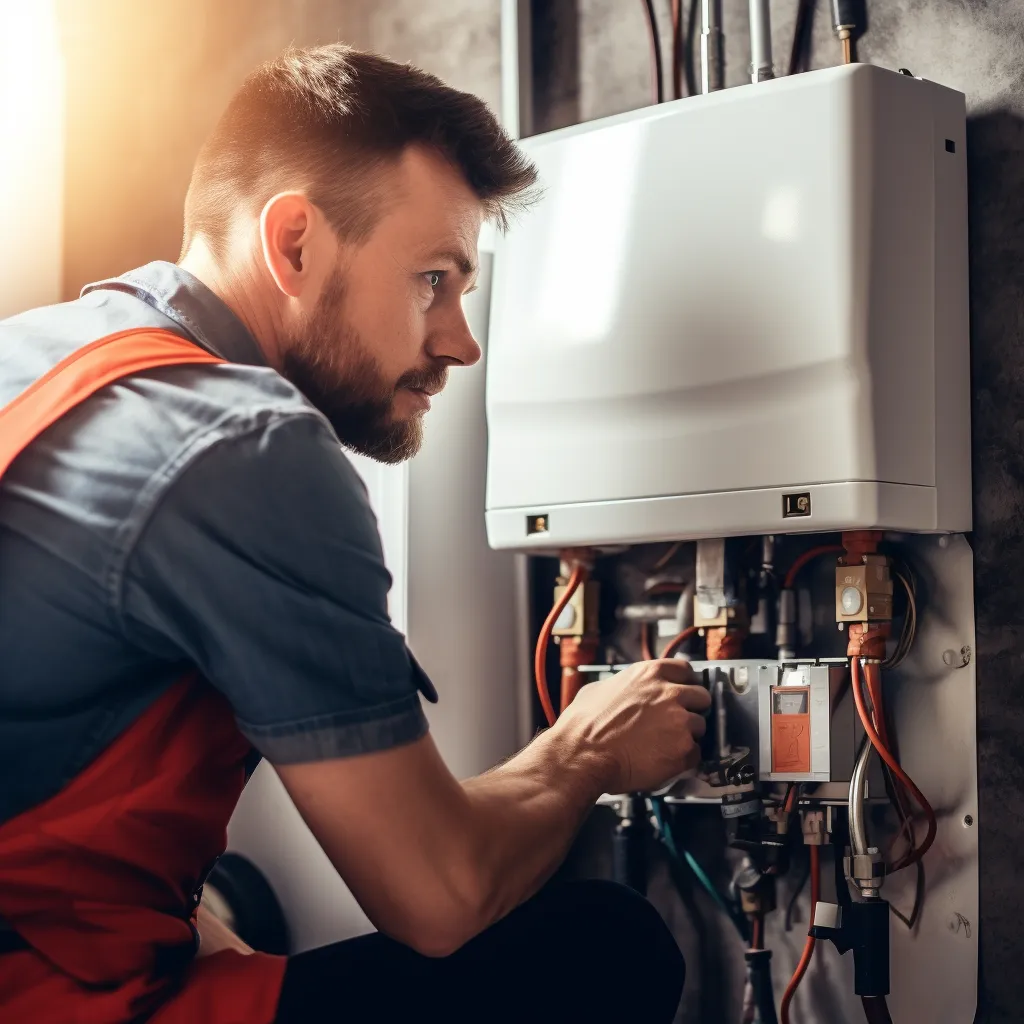
Common maintenance issues with tank water heaters
Like any other system, storage tank water heaters can encounter maintenance issues over time:
One of the most prevalent maintenance issues with storage tank water heaters is sediment buildup. As the water is heated, minerals and sediment can accumulate at the bottom of the tank. Over time, this sediment can reduce the efficiency and performance of the water heater, leading to increased energy consumption and a decrease in hot water supply. Regular flushing of the tank can help alleviate sediment buildup and ensure optimal function.
Another common issue is a malfunctioning or faulty pressure relief valve. This valve is a crucial safety feature that releases built-up pressure within the tank to prevent it from exploding. If the valve is not working correctly, excessive pressure may accumulate, resulting in safety hazards. Regular inspection and testing of the pressure relief valve can help identify any problems and ensure it is functioning properly.
Leaking is another common problem encountered with storage tank water heaters. Leaks can occur due to various reasons, such as corroded pipes, loose fittings, or a damaged tank. If left unaddressed, leaks can lead to significant water damage and even flooding. Therefore, it is essential to promptly address any signs of leakage to prevent further damage and the need for extensive repairs.
In some cases, water heaters may develop a buildup of rust within the tank. This can deteriorate the tank's integrity, leading to leaks and potential system failure.
Regular inspection of the tank's interior, along with the anode rod, can help detect signs of rust and corrosion. Replacing the anode rod before it completely deteriorates can extend the tank's lifespan and prevent costly repairs or replacements.
Issues related to the thermostat and heating elements can also arise. Faulty thermostats can result in inconsistent water temperature or overheating, while damaged heating elements can lead to inadequate hot water supply. Regular inspection and maintenance of these components can help ensure the water heater functions efficiently and reliably.
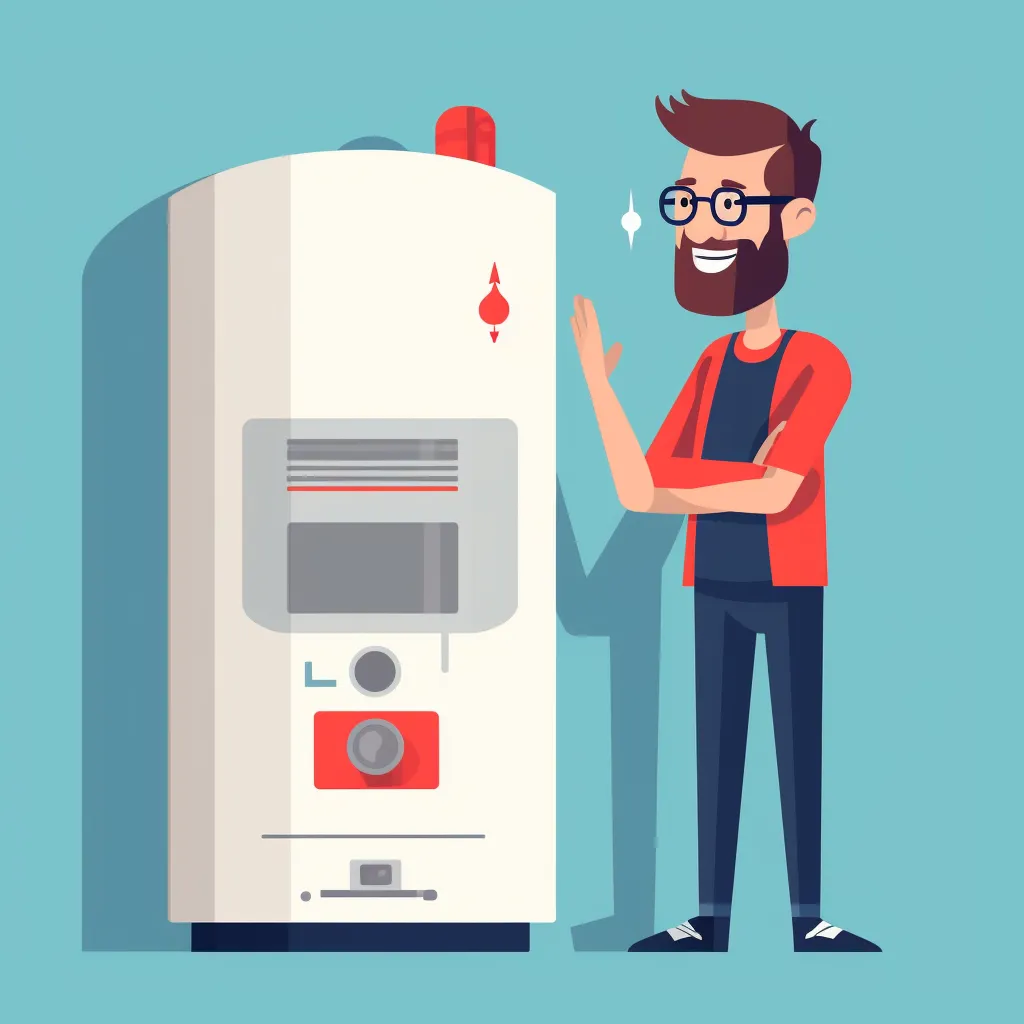
Common maintenance issues with tankless water heaters
When it comes to tankless water heaters, there are a few common maintenance issues that homeowners may encounter. Taking care of these issues promptly can help to ensure the optimal performance and longevity of your tankless water heater. Here are some of the most common tankless water heater maintenance issues:
Sediment Build-up: Over time, minerals and sediment can accumulate in the heat exchanger of a tankless water heater, obstructing the flow of water and affecting its efficiency. Regularly flushing the system can help to prevent sediment build-up and maintain the heater's performance.
Scaling: Hard water can cause scaling inside the tankless water heater, leading to reduced efficiency and potential damage. Installing a water softener or descaler can help to mitigate this issue and extend the lifespan of the unit.
Ignition Failure: Ignition problems can occur if the burner or the igniter becomes clogged or faulty. Regularly cleaning or replacing these components can help to prevent ignition failure and ensure that hot water is readily available when needed.
Gas Supply Issues: Tankless water heaters that run on gas require a steady and sufficient gas supply to operate effectively. Check for any blockages or leaks in the gas line and ensure that the gas pressure is within the manufacturer's specifications.
Overheating: If the tankless water heater gets too hot, it may shut off as a safety precaution. This could be due to a malfunctioning thermostat or a buildup of dust and debris around the unit. Cleaning the area around the water heater and checking the thermostat can help to prevent overheating issues.
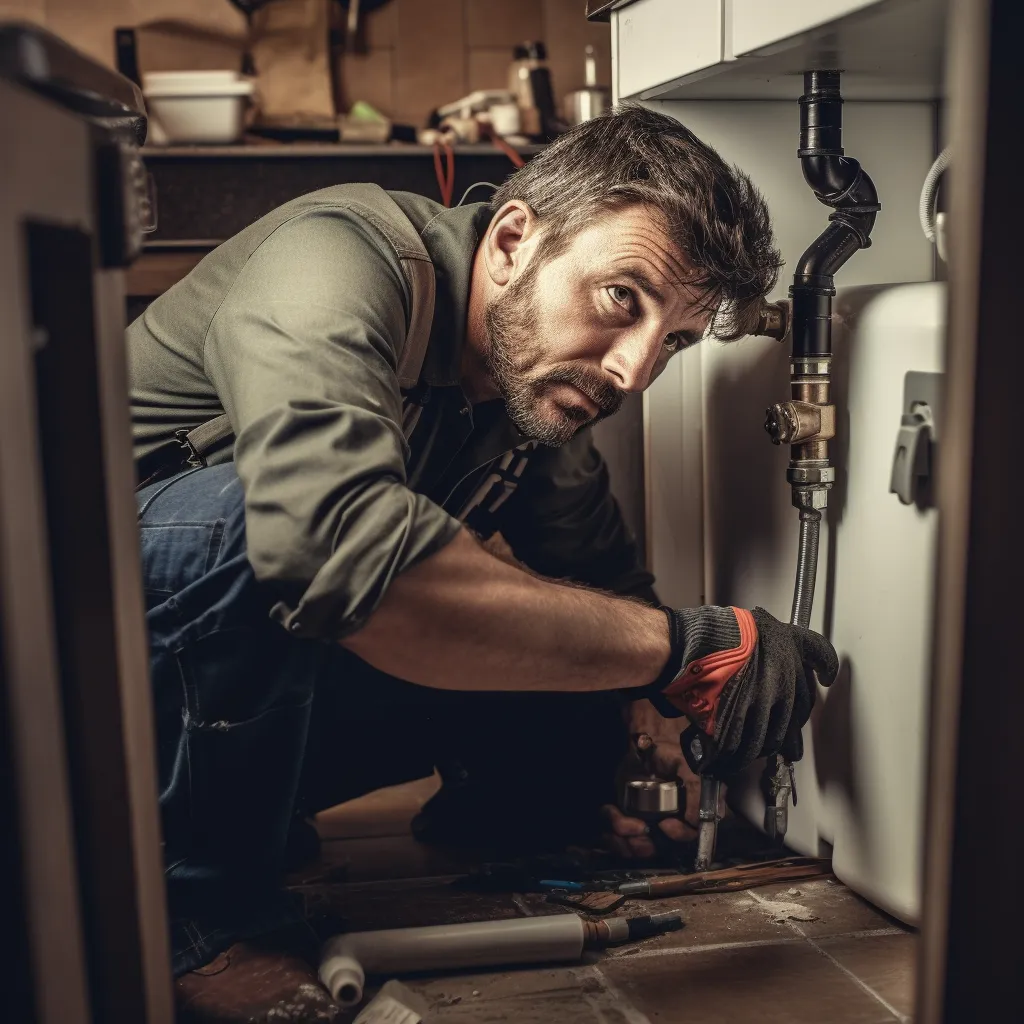
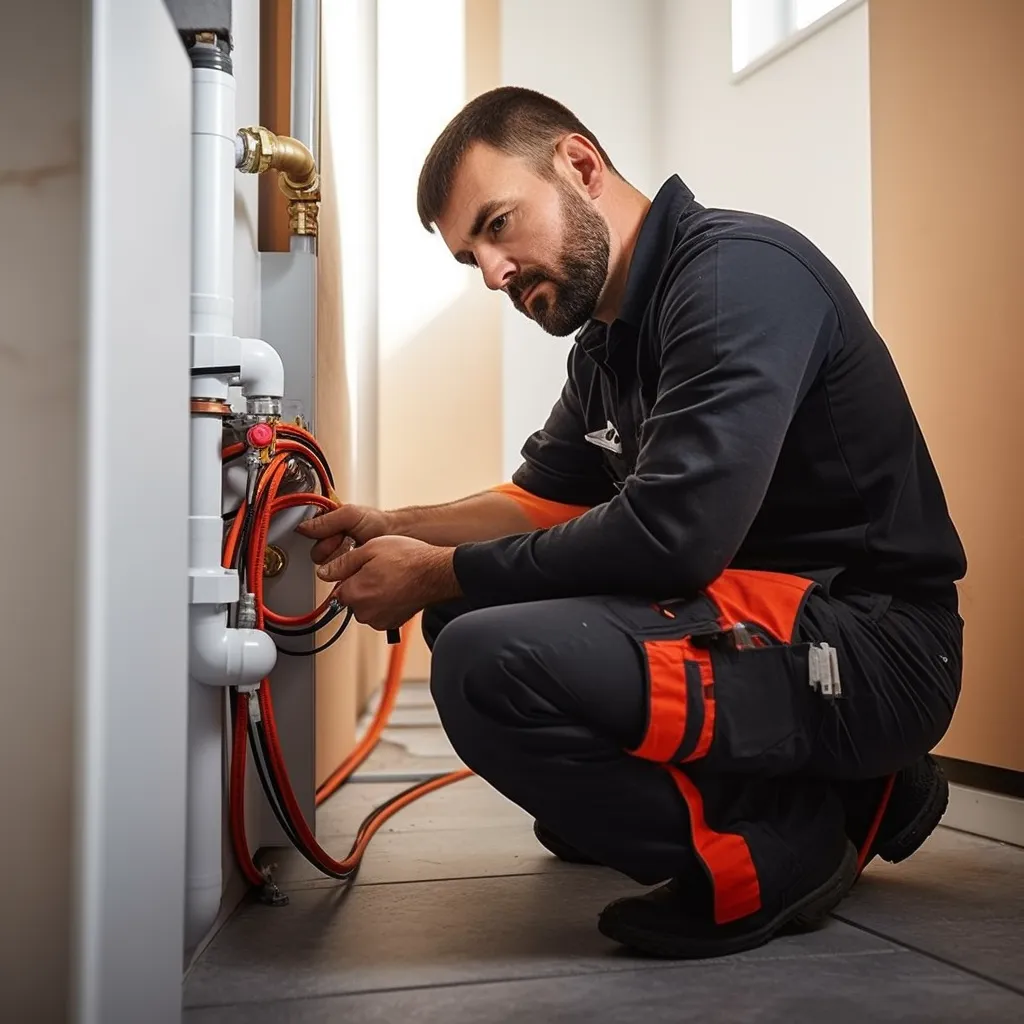
How long do storage tank water heaters last?
The lifespan of a tank water heater typically ranges between 8 to 12 years. However, several factors can influence the longevity of a water heater, such as proper maintenance, water quality, and usage patterns. Over time, sediment buildup can occur inside the tank, diminishing its efficiency and potentially leading to leaks or complete failure. If you have an older water heater that is experiencing frequent issues or nearing the end of its lifespan, it may be time to consider a water heater replacement in West Monroe. Professional technicians can assess your specific needs and recommend a new, efficient model that will provide reliable hot water for years to come.
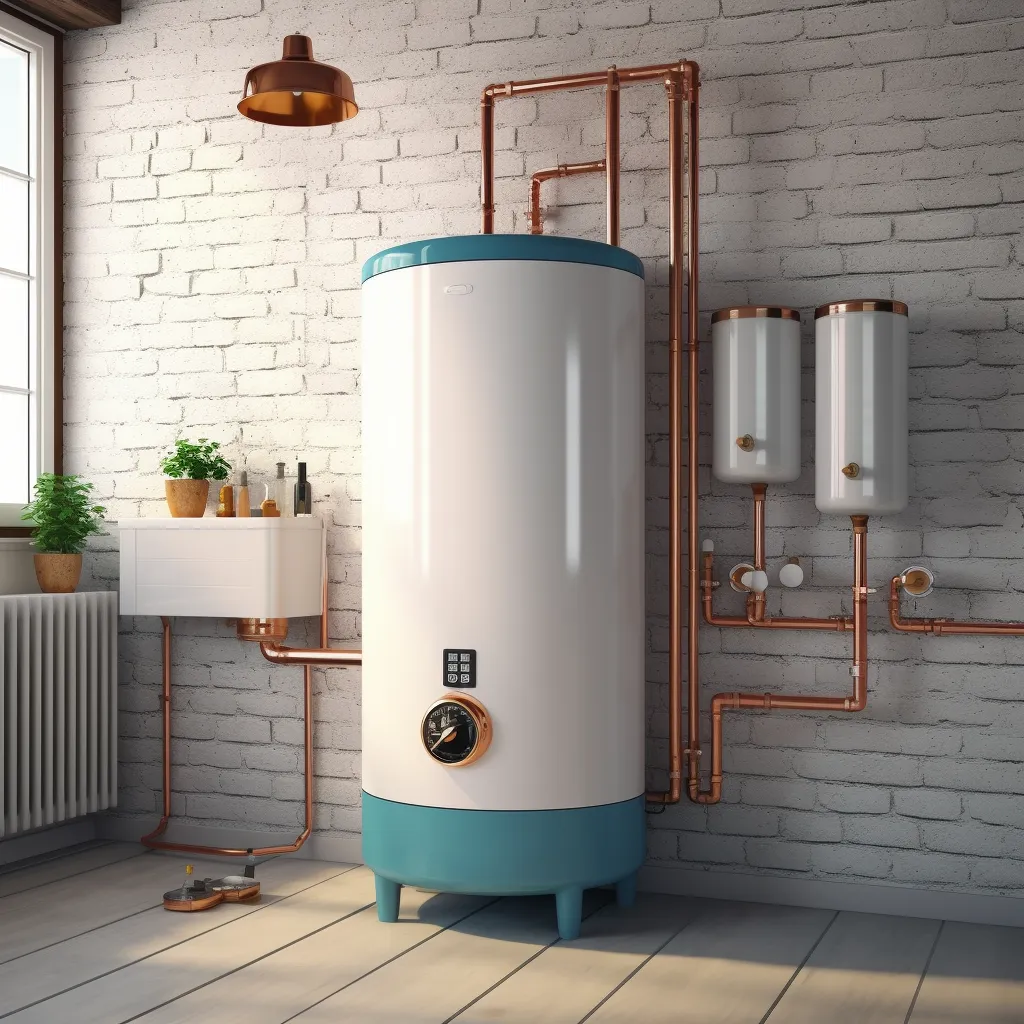
How long do tankless water heaters last?
On average, tankless water heaters have a longer lifespan compared to their traditional counterparts. Typically, a tankless water heater can last anywhere between 15 to 20 years, depending on its usage, maintenance, and quality. One key advantage of tankless water heaters is that they are built to be more durable and reliable. They do not store water like traditional water heaters, which helps to eliminate the risk of tank corrosion and leaks. Additionally, tankless water heaters are designed with high-quality materials and advanced technology that contribute to their longevity. However, it's essential to note that the lifespan can vary based on how well the unit is maintained and the water quality in your area. Regular maintenance and cleaning can prolong the lifespan of a tankless water heater. This involves descaling the unit to remove mineral deposits and ensuring proper ventilation and airflow.
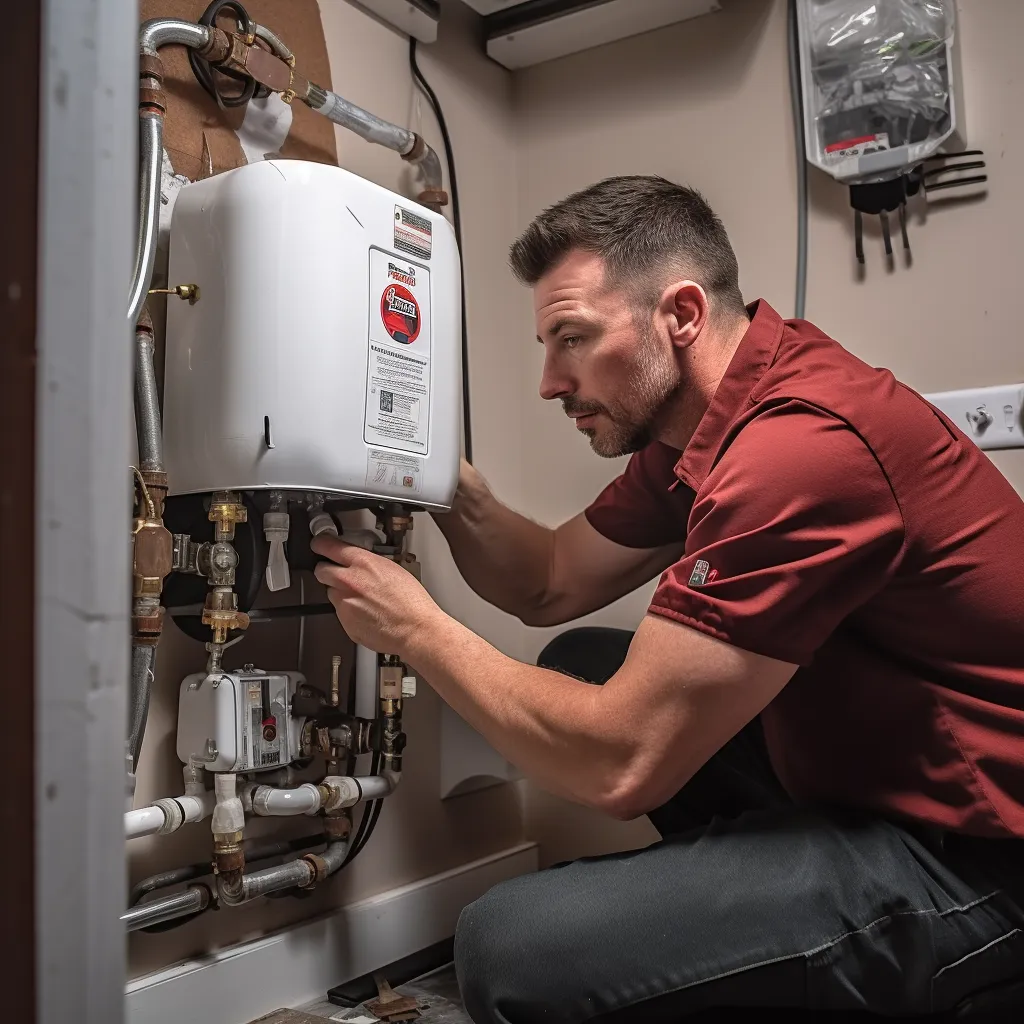
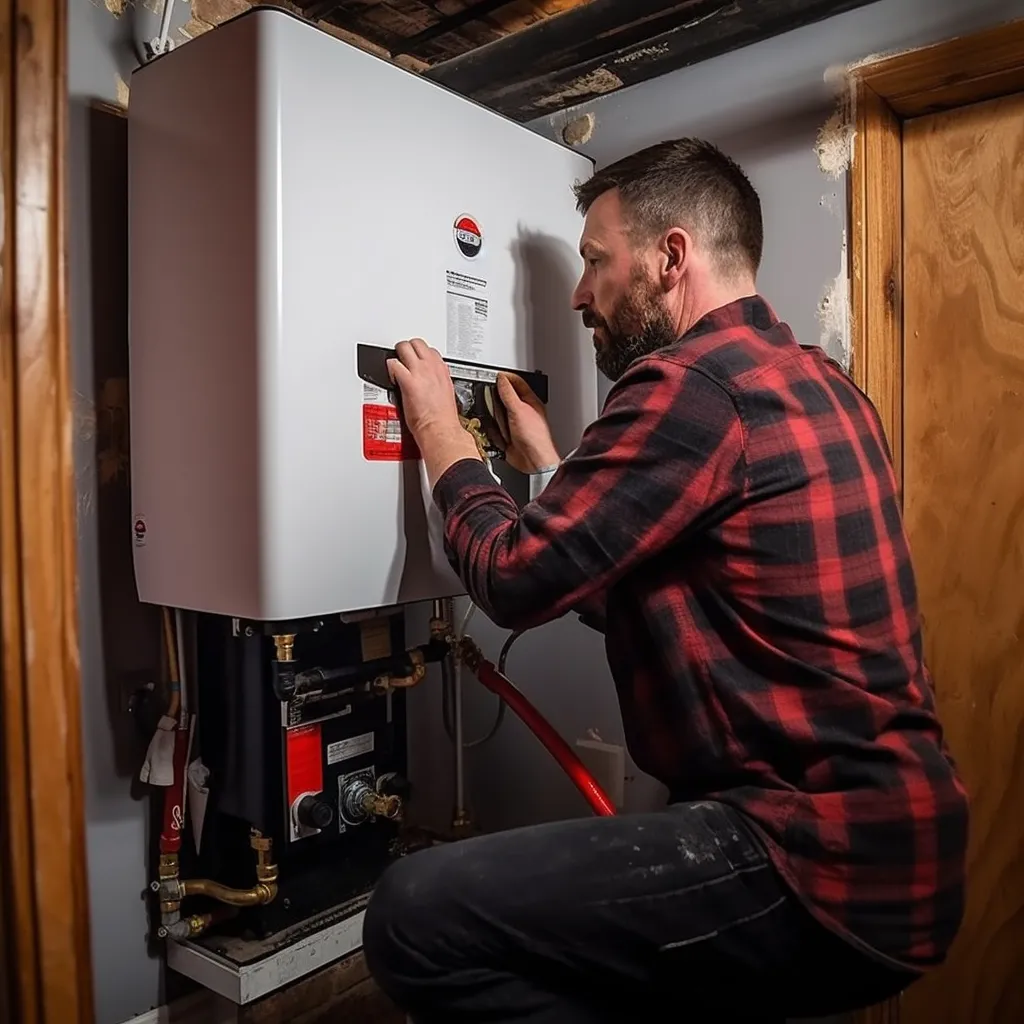
Gas vs electric water heaters
When it comes to water heaters, you will be faced with the choice between gas and electric water heaters. Both options have their own advantages and considerations that you need to take into account before making a decision. Gas water heaters are known for their efficiency and ability to provide hot water quickly. They heat water using a gas burner, which means they have a faster recovery rate than electric water heaters. This is particularly beneficial for larger households or homes that require a constant supply of hot water. Gas water heaters are also favored by those who prefer the feel and temperature consistency of gas-heated water. On the other hand, electric water heaters are generally more cost-effective upfront and do not require the installation of a gas line. They are also safer as there is no risk of gas leaks or carbon monoxide poisoning. Electric water heaters are easier to install and maintain, making them a popular choice for smaller households or those with limited space. When considering a water heater replacement in West Monroe, it's important to take into account factors such as energy efficiency, cost of installation and operation, availability of gas lines, and your individual hot water needs. It's also a good idea to consult with a professional plumber or water heater specialist who can assess your specific requirements and help you make an informed decision.
How decide between a tank vs tankless water heater
When it comes to choosing between a tankless or a tank water heater, there are several factors to consider in order to determine which option is right for you:
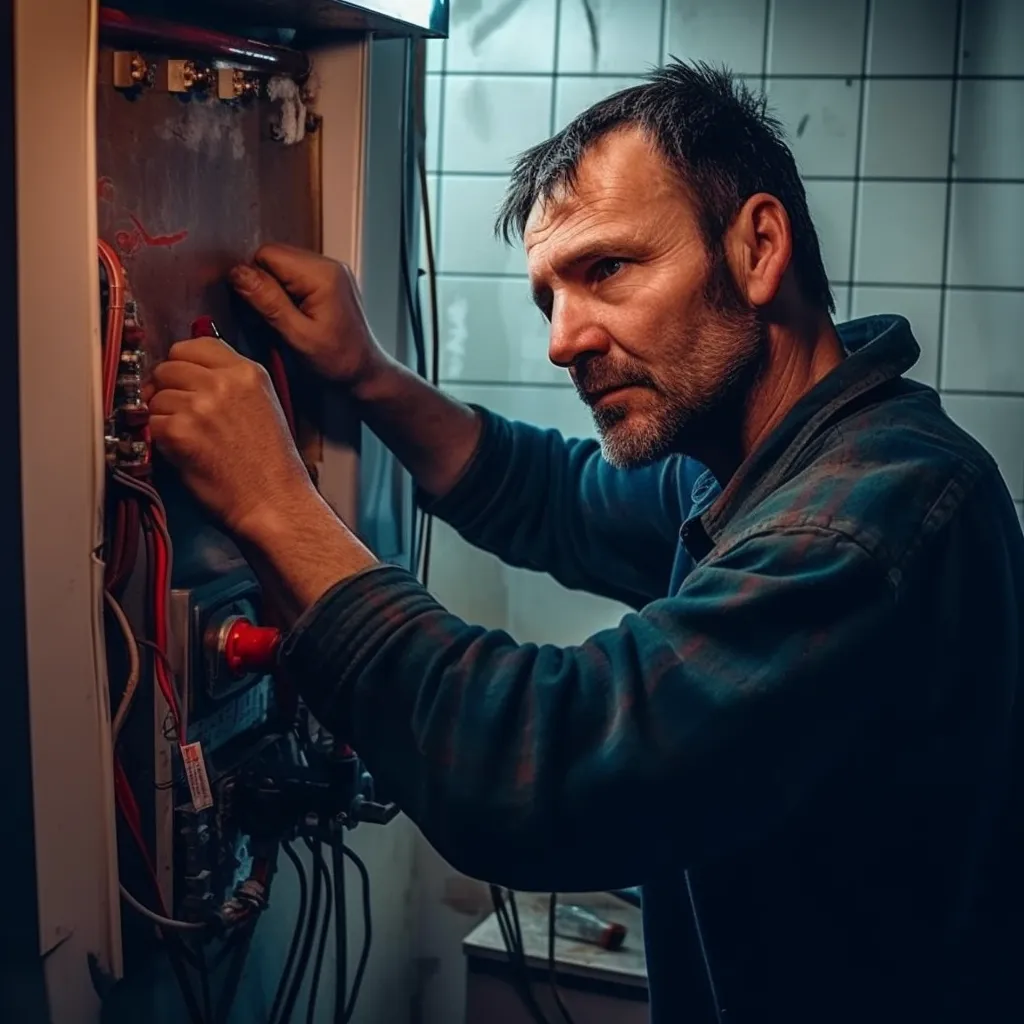
One such factor is the size and layout of your home. If you live in a smaller space or have limited room for a water heater, a tankless option may be the better choice. Tankless water heaters are compact and can be installed on walls, freeing up valuable floor space. On the other hand, traditional tank water heaters require a larger area for installation.
Additionally, the number of people in your household and their hot water needs should be taken into account. Tankless water heaters provide hot water on demand, meaning they will never run out of hot water. This makes them ideal for larger families or households with higher hot water demands. However, if your household has fewer members or your hot water needs are not as high, a tank water heater may be sufficient.
Another crucial factor to consider is energy efficiency. Tankless water heaters are known for their energy efficiency as they only heat water when it is needed. This eliminates the need for constantly keeping the water heated, resulting in potential energy savings. Tank water heaters, on the other hand, continuously heat and store a large amount of water, which can lead to higher energy consumption.
It is important to take into account your budget. Tankless water heaters usually have a higher upfront cost than tank water heaters. However, their energy efficiency may help you save on utility bills in the long run. Tank water heaters, on the other hand, have a lower initial cost but may lead to higher energy expenses over time.
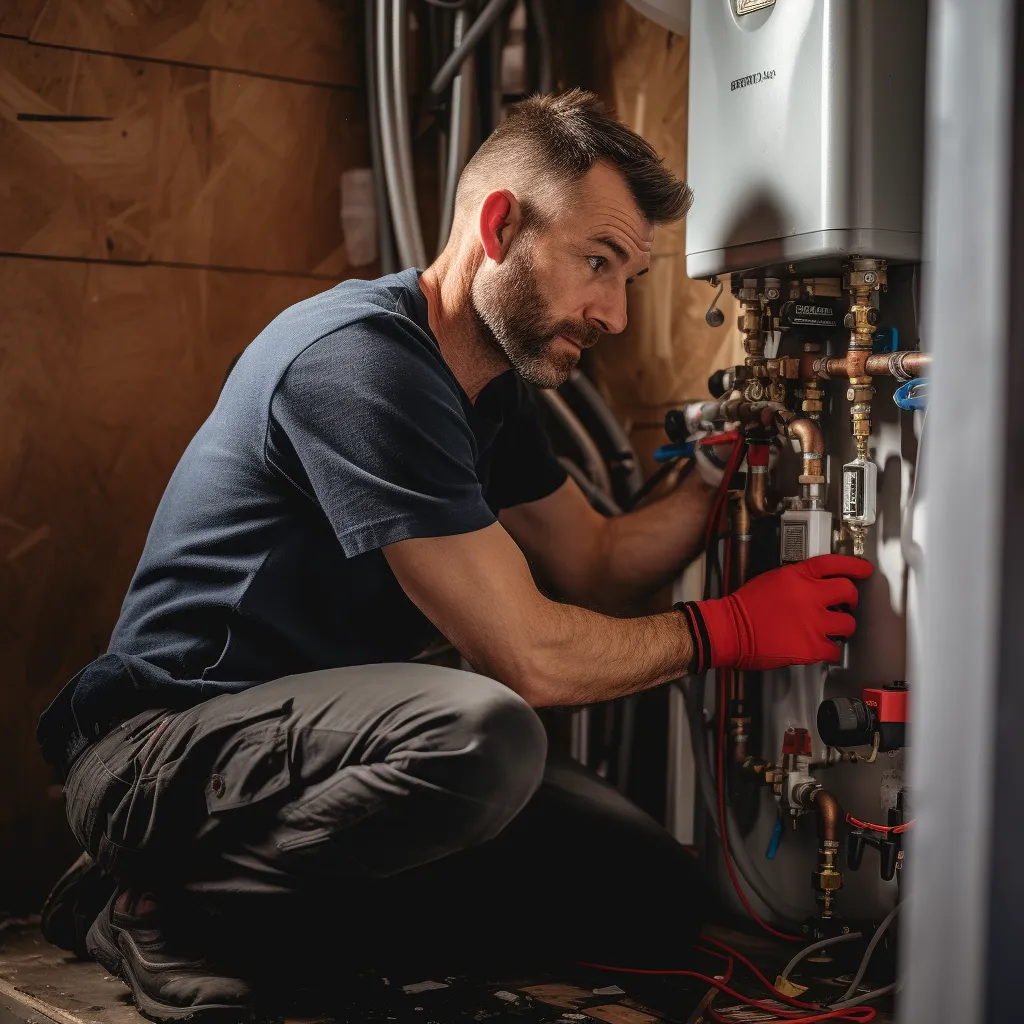
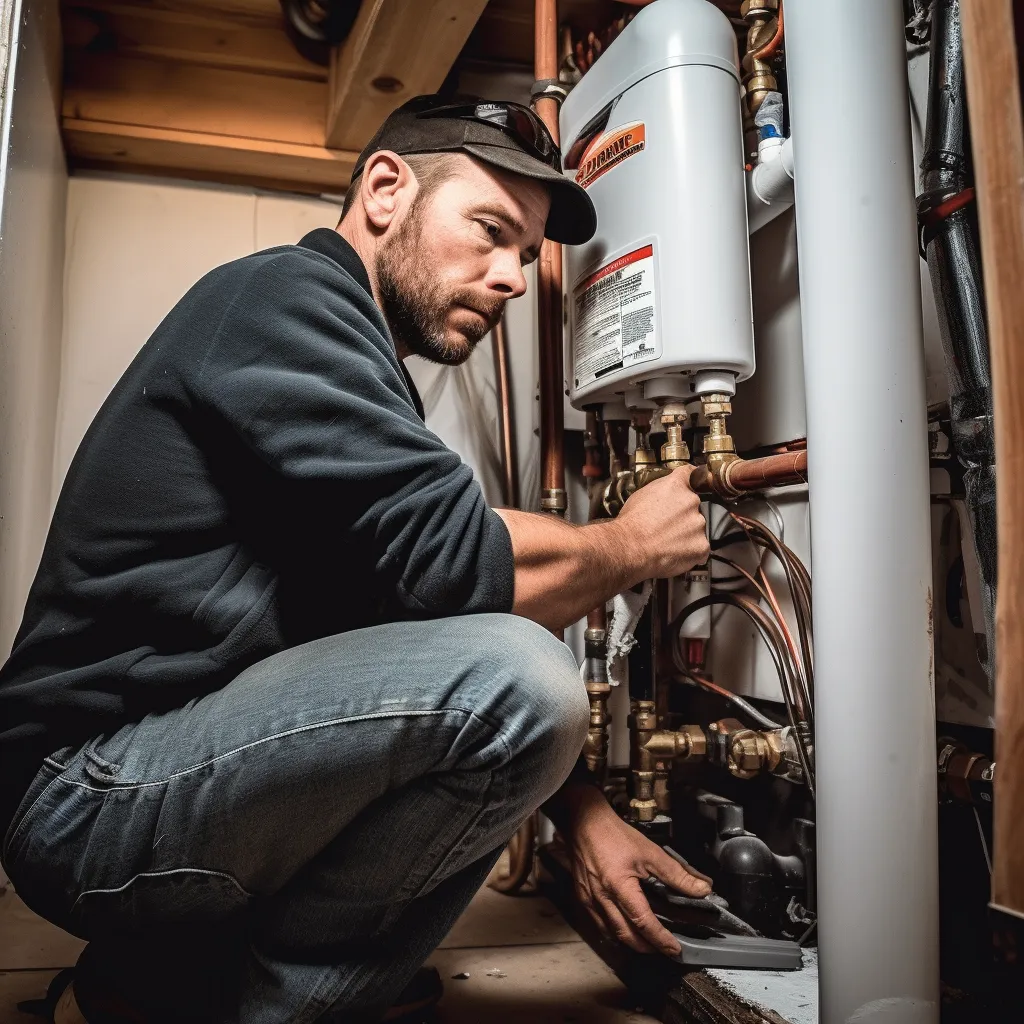
Hiring a licensed expert is recommended
Hiring a licensed professional is not only important but also highly recommended. While some homeowners may consider attempting the replacement themselves to save money, the risks and potential complications outweigh any potential savings.
Licensed professionals possess the necessary expertise and experience to tackle water heater replacement with efficiency and precision. They are trained to handle various types of water heaters, ensuring that the installation process is carried out correctly and safely.
By hiring a licensed professional for your water heater replacement, you can have peace of mind knowing that the work will be done according to local building codes and regulations. This is particularly important as improper installation can lead to severe safety hazards, such as gas leaks or electrical issues. Additionally, licensed professionals have the necessary tools and equipment to perform the replacement successfully.
They can also accurately assess your specific needs and recommend the most suitable water heater for your home, taking into consideration factors such as capacity, energy efficiency, and budget.
Hiring a licensed professional for water heater replacement can save you valuable time and effort. They can efficiently remove your old water heater and replace it with a new one, minimizing any potential disruptions to your daily routine.
Licensed professionals often provide warranties for their work, offering you additional protection and peace of mind. In case any issues arise after the replacement, you can rely on their expertise to resolve the problem promptly and effectively.

Be sure to research tank vs tankless options
If you're in West Monroe and in need of a water heater replacement, it's important to carefully consider your options. One crucial decision you'll have to make is whether to go with a tank or a tankless model. Before making this choice, it's vital to assess your specific requirements, budget, and installation needs. By taking the time to thoroughly research and evaluate these factors, you can ensure that you make an informed decision. Making the right decision can have a significant impact on your home. Not only can a new water heater decrease your energy costs, but it can also provide you with hot water whenever you need it. To make an informed choice, it's essential to research different types of units and their energy efficiency ratings. By doing your homework, you'll ensure that you select a water heater that meets your specific needs while taking energy efficiency into account. So, if you're planning a water heater replacement in West Monroe, take the time to thoroughly research your options, weigh your requirements and budget, and make a decision that will have a positive impact on your home. Good luck with your decision-making process!
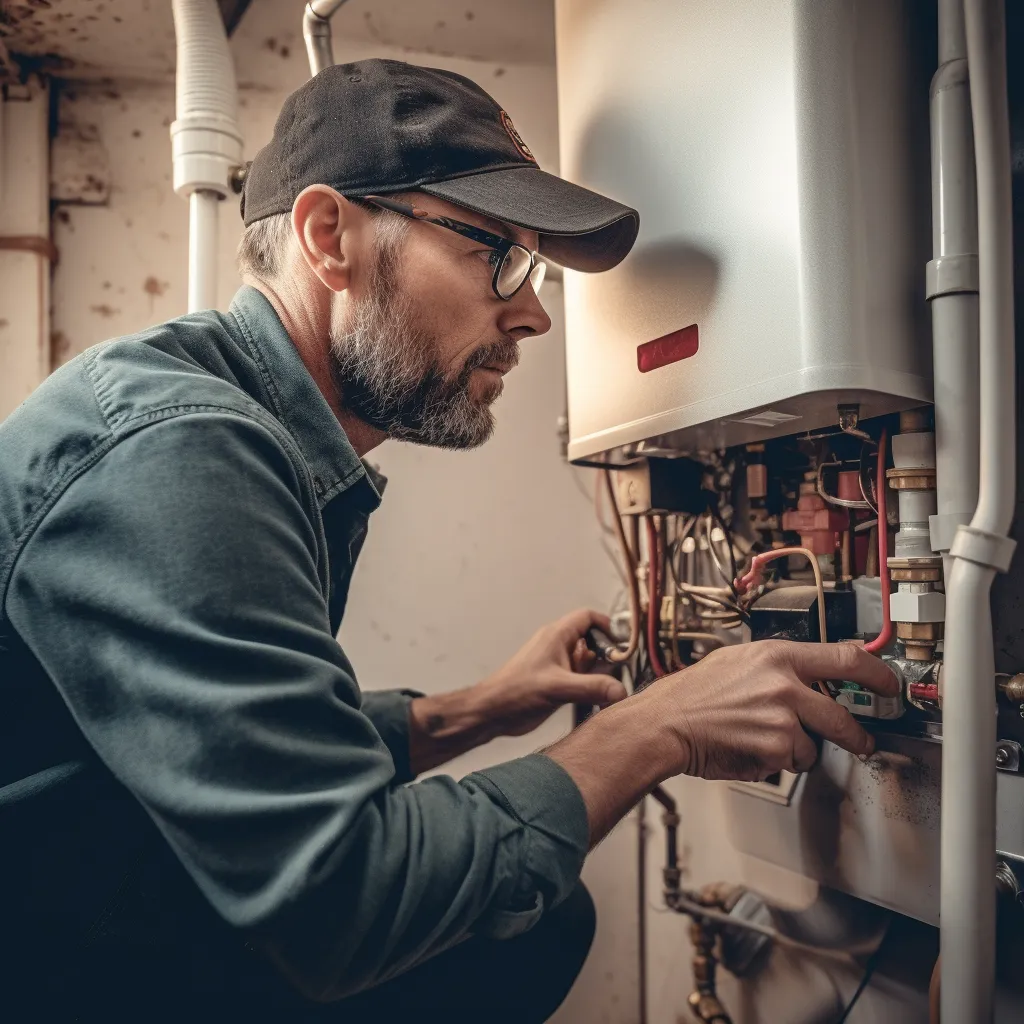
Contact Us
GET IN FULL TOUCH
PHONE: (318) 933-7010
EMAIL:
shane@waterheaterwestmonroe.com
Shane Wright Plumbing
West Monroe, LA 71292
